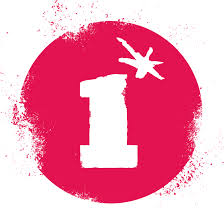This article was originally published on April 14, 2014, by Haaretz. The full article can be found on their website here.
Slavery is a modern concern in the Southwest Florida tomato fields. As we celebrate our freedom this Passover, may we join the struggle against exploitative labor.
Several weeks ago, students at our Martin J. Gottlieb Day School at theJacksonville Jewish Center welcomed over 70 migrant farm workers for breakfast. While the middle school students participate in weekly mitzvah projects and regularly volunteer in soup kitchens and food banks, this was not an instance of feeding the hungry. Instead, this was an example of welcoming in the oppressed.
These migrant workers were a part of the Coalition of Immakolee Workers (CIW) based roughly four hours from Jacksonville, Florida. I heard from, saw and expressed the struggles of these workers firsthand last year when I traveled with a rabbinic delegation to Immakolee, sponsored by Truah: The Rabbinic Call for Human Rights. The Department of Justice refers to Southwest Florida as “ground zero for modern slavery.” In fact, according to U.S. Attorney Douglas Molloy, anyone who has eaten a winter tomato has eaten a fruit picked by a slave.
 While I did not witness slavery in the tomato fields upon my visit, I did hear story after story of exploitation. In the most extreme cases, there was modern-day slavery, the last case tried as recently as 2008. If slavery is the extreme end of a continuum of abusive and exploitative labor practices, the CIW fears that without serious changes, modern day slavery will continue. Some migrant workers had been enslaved to growers and crew leaders through coercion, force, fraud and debt. Most though are exploited through cheap labor: being paid by the amount of pieces picked, 50 cents for a 32-pound bushel of tomatoes. This bushel will cost the consumer roughly $81 in the supermarket, yet the migrant workers have been paid this wage since 1978.
While I did not witness slavery in the tomato fields upon my visit, I did hear story after story of exploitation. In the most extreme cases, there was modern-day slavery, the last case tried as recently as 2008. If slavery is the extreme end of a continuum of abusive and exploitative labor practices, the CIW fears that without serious changes, modern day slavery will continue. Some migrant workers had been enslaved to growers and crew leaders through coercion, force, fraud and debt. Most though are exploited through cheap labor: being paid by the amount of pieces picked, 50 cents for a 32-pound bushel of tomatoes. This bushel will cost the consumer roughly $81 in the supermarket, yet the migrant workers have been paid this wage since 1978.
Refusing to be exploited, refusing to deal with the day-to-day threat of modern-day slavery, the CIW, founded over 20 years ago by Latino, Haitian, and Mayan Indian farmworkers, launched the Fair Food Program. This campaign encourages corporations, restaurant chains, and supermarkets to sign on and agree to pay a penny more per pound of tomatoes in order to improve wages for workers, but, most importantly, to improve working conditions. Such a change doesn’t just guarantee that workers will finally be paid a minimum wage, but it does guarantee the protection in the field from safety concerns, threat, assault and sexual abuse.
These migrant workers visited our students as they passed through Jacksonville as part of their “Now is the Time” tour, traveling throughout the southeast and mid-west of the United States to urge national companies, especially fast food chain Wendy’s and supermarket chainPublix, to join the Fair Food Program. These workers spoke to our students like a modern-day Moses, standing up to the Pharaohs of the food industry and fighting against slavery and exploitation in the fields, demanding companies that thrive on cheap labor to “let my people go.”
They were touched when we explained to them that we would be placing tomatoes on our seder plates this year during the Passover holiday in recognition of their efforts and as a reminder of the work still to be done. Ironically, we read in the Haggadah during the Passover seder, “this year we are slaves. Next year, may we be free people.” The holiday that celebrates the Jewish people’s freedom from slavery in Egypt still acknowledges the exploitation and enslavement of so many in the world around us. It is our responsibility and task to not just praise God for our freedom, but also to act as God’s messengers and fight for freedom for all. The tomato on the seder plate acknowledges the continuity of our narrative. Our fight for freedom did not end when we crossed the split Sea of Reeds. Our fight for freedom continues.
There is a new day in the tomato fields of southwest Florida, with many large corporations joining the Fair Food Program, most recently Walmart, the United States’ largest supermarket chain. The CIW – and our Middle School students who join in their fight for equality and freedom – believe now is the time for change. We celebrate freedom and continue to fight for freedom for all. We fight for Wendy’s and Publix and all restaurants and supermarkets to join the Fair Food Program. We see the tomato on our seder plates and remember the work we still have to do, so that we can one day truly celebrate at our seders that we are all free people.
– Rabbi Jesse M. Olitzky











